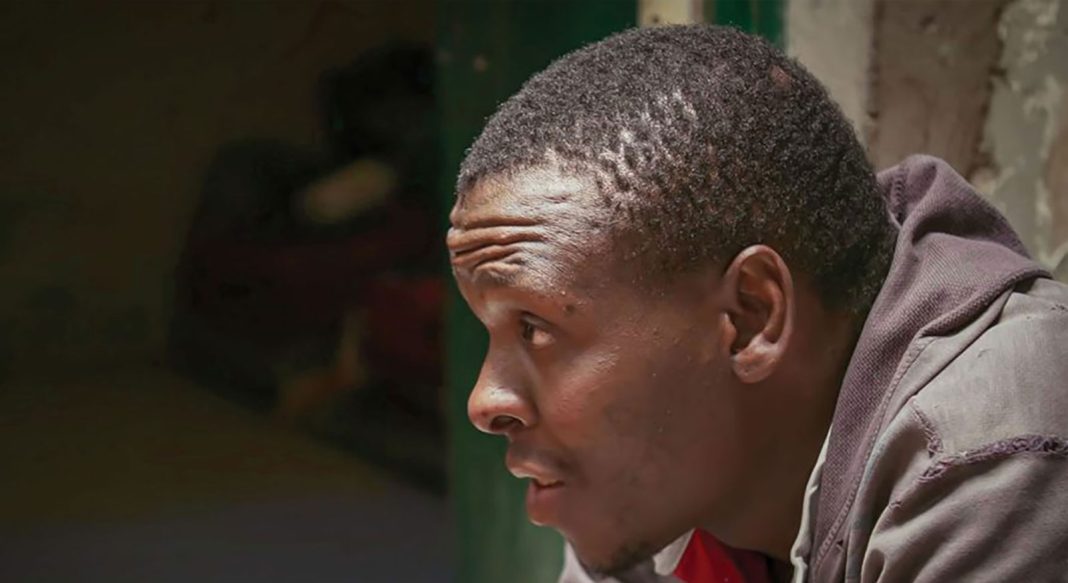The community of Ha Kelebone in Quthing district is outraged after the High Court this week handed a ‘lenient’ 25-year sentence to a man convicted of the gruesome quadruple murder of his own children and brother.
The aggrieved villagers say the sentence is too light and they will be forced to take the law into their own hands in the event that he is released on parole before serving his full sentence.
“If the justice system releases him, we will take matters into our hands,” a village head told theReporter in a telephonic interview.
Justice Molefi Makara on Monday this week found Mphatšoe Ntjelo guilty on all the four counts and sentenced him to 25 years for each – a total 100 years. However, the sentences will run concurrently, meaning he will serve an effective 25 years.
Justice Makara noted that his decision was informed by the expert testimony of a court-appointed psychologist who assessed Ntjelo’s mental state at the time of the crimes.
Ntjelo (35) of Ha Kelebone, who has been languishing in remand at the Maseru Central Correctional Institution for about 10 years, was found guilty of murdering his children, then aged six years, Motšabi (eldest), Reatšeliseha (3 months) and Nthona (3 years), as well as his younger brother Molefi (10), supposedly to acquire wealth through ritualistic means.
Evidence presented by the psychologist from the Ministry of Social Development pointed to Ntjelo’s purportedly harsh and unstable upbringing.
According to the psychologist’s analysis, Ntjelo’s childhood development was so lacking in nurturing and stability that he had developed deeply rooted psychological issues which were deemed to be responsible for his inability to function as a normal, empathetic human being.
In his defense, Ntjelo’s legal team painted a picture of a childhood marred by deprivation and trauma, citing that his upbringing was both brutal and unstable, laying the groundwork for his destructive behaviour as an adult.
Advocate Khosi Lesuthu outlined that Ntjelo was orphaned at a tender age and was forced to fend for himself and his siblings as a herd boy.
He indicated that the convict’s transition from child to parentless caretaker robbed him of his own childhood, twisting his psyche into that of a damaged, empty shell of a man.
But villagers who say they are still reeling from the shocking crime have lambasted the ruling as a ‘travesty’ that risks endangering more innocent lives.
In an interview with theReporter following Ntjelo’s sentencing, Ha Kelebone village Chief Mohlori Nkuebe said the harrowing crimes have left the community with deep psychological scars that may never heal.
Chief Nkuebe’s frustration with the court’s ruling reverberated throughout Ha Kelebone as he decried Ntjelo’s perceived lenient sentence.
“If four horrific murders can be met with such a leniency, then what value does justice truly hold in the eyes of the law? he equipped.
He further warned that the Ha Kelebone community would not tolerate Ntjelo’s release before his full term because of fears that they might repeat his heinous acts on their children.
“Ntjelo will not be safe anywhere because we are afraid, he might come out to kill our own children now that he has finished his. He must rot in jail. The court must not even consider releasing him on parole or somehow,” proclaimed Chief Nkuebe.
While the court heard testimony from a psychologist who claimed that Ntjelo’s childhood trauma may have influenced his actions, his uncle, Masilo Nchaka, and Chief Nkuebe painted a drastically different picture.
Nchaka told this publication in a telephone interview on Wednesday this week that Ntjelo was raised in a stable home by both parents who were into livestock and crop farming, until he got married and had their first child.
He however, felt the sentence was too harsh, considering that Ntjelo has already spent nearly 10 years in remand prison.
“We are saddened by the 25-year sentence. We have already been through so much as a family. Ntjelo has already spent almost 10 years in remand prison and this sentencing feels like a continuation of his suffering.
“We understand what he did was wrong, but we had hoped for a lighter sentence. However, the court has made its decision, and we have to accept it,” Nchaka said.
Ntjelo, acting in common interest with his late wife ‘Mamotšabi, who died at the police cells in Quthing committed the disturbing incidents between October 2014 and February 2015.
Evidence presented before the court revealed that the duo first killed their two elder children (Reatšeliseha and the other) in October and the youngest (Nthona) in January 2015.
The couple buried their bodies in two of their huts. They went on to dismember the deceased’s bodies before burying their parts in one of the huts at their homestead.
After killing Molefi also in 2015, the duo mutilated his body before burying it in the same hut they buried the rest of the children. They took out Molefi’s hear, mutilated the armpits, cut off his ears and then later buried the body together with Nthona’s in a small hut.
Molefi’s body was buried with the cut-off head on the stomach; it was identifiable as it had not decayed yet. Ntjelo is also said to have taken a saw and grinded Molefi’s skull to extract his brain before burying his body.
Investigators revealed that the deceased’s bodies were disfigured with the purpose of creating ‘muti’ with the hope that it would help the couple have a chain of shops, lots of cattle and taxis.
The bodies were reportedly buried together with the head of a donkey and some ‘muti’.









